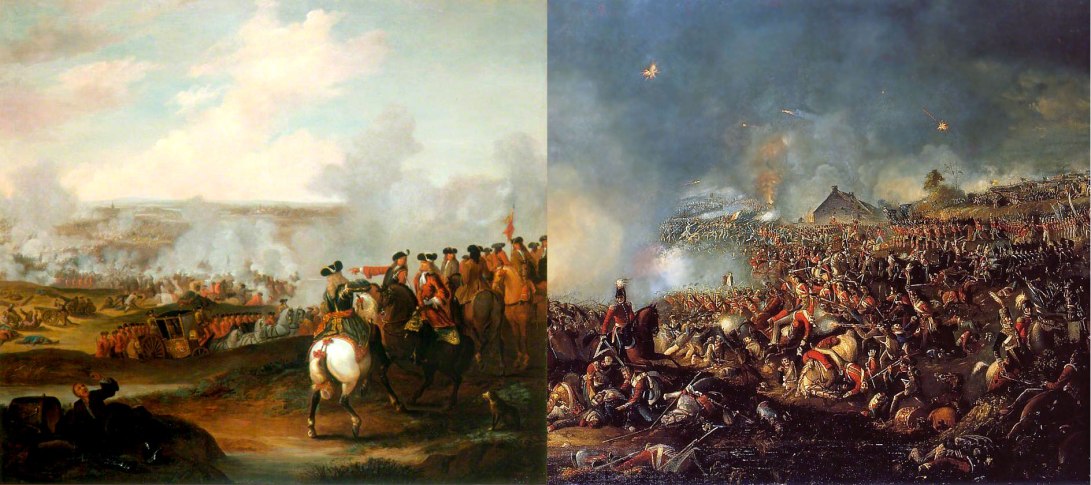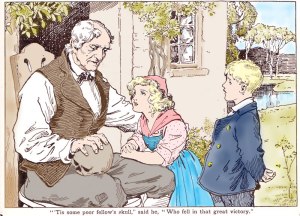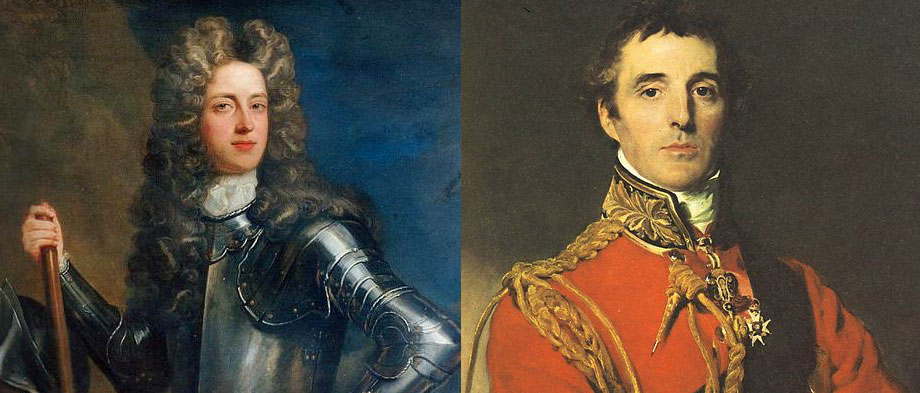
Right: Battle of Waterloo, 1815
Throughout my time at Blenheim Palace, I was intrigued that the Battle of Blenheim was overshadowed in English history by the Battle of Waterloo. Not infrequently visitors thought the famous tapestries showed the Duke of Wellington fighting the French whereas they show the Duke of Marlborough fighting the same foe a century earlier. Visitors were far more interested in Winston Churchill (who was born at Blenheim Palace) than in his ancestor, John Churchill who won the ‘glorious victory’ on the fields of Bavaria at the beginning of the eighteenth century. Winston himself tried to set the record straight, believing that John Churchill’s defeat of the armies of Louis XIV in 1704 changed the axis of power in Europe more dramatically than the defeat of Napoleon.
Marlborough and Wellington are both regarded as brilliant generals but Wellington always seems to steal the march. The poet Robert Southey in 1796 wrote an anti-war poem about a skull found by children in the fields of Bavaria, highlighting the pointless human sacrifice.

In fact, the death toll at Blenheim was half that of Waterloo, a battle Southey praised in a later poem written in 1816. And the sacrifice at Blenheim was certainly not in vain. The victory destroyed Europe’s belief in the invincibility of the French, saved Vienna from invasion and stopped the expansionist policies of Louis XIV.
In his history of the British army, John Fortescue wrote that Marlborough, like Wellington, ‘was endowed with a strong common sense that in itself amounted to genius’ but thought that ‘there was a bond of humanity between Marlborough and his men that was lacking in Wellington,’ and yet Wellington remains in the national consciousness and Marlborough is all but forgotten.

Right: 1st Duke of Wellington
It’s a puzzzle. The two generals shared other attributes: they were both handsome men, although perhaps Wellington’s more contemporary look captures the nation’s imagination better than Marlborough’s (the Brian May wig doesn’t help). Another reason may be that the history curriculum in this country tends not to focus on the early part of the eighteenth century. But my favourite reason was put to me by a visiting historian. He reckoned Waterloo was more famous because it was an easier battlefield for tourists to visit, standing just outside Brussels, and because it had a catchy name that people remembered.
Wellington is remembered because he had a better Chef than Marlborough!! And a better boot maker!
LikeLike